News
Protest by disabled soldiers: Hopes of settlement next week
View(s):As the protest by disabled soldiers and their families enters its 11th day, Finance Minister Mangala Samaraweera has agreed to provide 75 percent from the proposed salary in addition to the pension for the fully and partially disabled war heroes – raising hopes of a settlement to the dispute.
Outside the Fort railway station the protest continued yesterday, with expectations that the issue would be resolved at next week’s cabinet meeting.
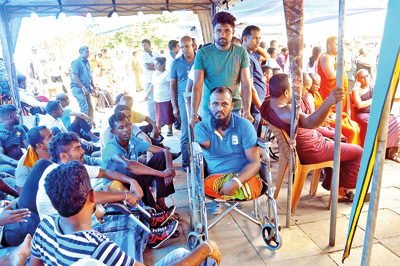
Thushara Kumara
The disabled soldiers have been carrying out the protest demanding the government continues to pay their salaries even after their retirement at the age of 55.
“We are not going to call off our protest campaign until we get a written document regarding the payment of our salaries. During the war, soldiers did not fight half-heartedly, they went to the battle field with the sole purpose of fighting the terrorists. We need justice for all these 30 thousand,” explained M.K.Weerasekara, wife of the late K.M.S.Rathnayaka of the Sinha Regiment. He was killed in action in 1997.
The protest was launched to demand from the government to pay disabled soldiers the salary and pension after they reached the age of 55, instead of only paying the pension. They say the pension alone is not sufficient for their survival.
Most of the soldiers are visually impaired and are having physical difficulties due to the injuries they suffered during their service period.
One of the protest conveners C.P. Punchihewa said: “We will continue with our protest as the government has not accepted our demands.”
He said that compared to the soldiers most government officers were getting higher salaries.
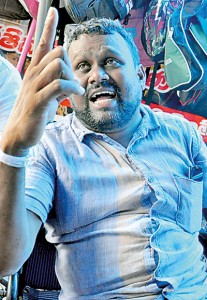
P.H. Sampath Kumarawansha
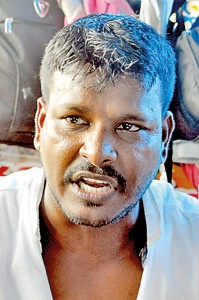
C.P. Punchihewa
“We do not have objections about others having higher salaries, what we request is to continue our salaries even after our retirement,” he said.
Some were facing difficulties to maintain their families and educate their children, while others were finding it hard to get the needed medication and support to survive.
Describing his personal plight, P.H. Sampath Kumarawansha said “I am worried about what the future holds for my family when I reach 55. I have four children and one of them is two and half years old, how could I afford to pay for their higher education by the time I reach 55.”
Special Forces officer 40-year-old Thushara Kumara, who was badly injured on March 2, 2008, during the ‘Humanitarian mission’ said both his legs and right arm were amputed, and only his remaining left hand enabled him to do his work.
“We have done what should be done sacrificing our lives in the name of patriotism. This is what we get in return,” he said.
Dead soldier’s wife Irosha Samantha, asked why the government could not give them their normal salary.
She lost her father in 1996 and her younger brother, who was a commander during the war.
Deceased soldier W.P. Upul Wasantha’s wife,Champa Kumari, said “My husband was not lucky to know that he is a father.”
Being a single mother she had to undergo financial hardships to educate her son.
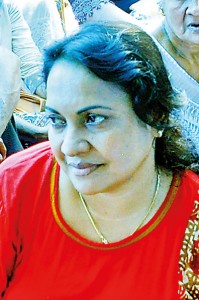
Champa Kumari
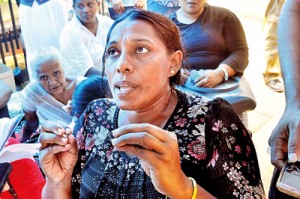
M.K.Weerasekara
At present a monthly payment is being made to a surviving spouse, child, or parent because of a service-connected death during the war.
Depending on their time period they are given the pension after the decease reaches 55. With the proposed proposal they will be given an allowance.
According to the military spokesman 35,283 soldiers had to be paid this amount, with 17,118 of them fully and partially disabled and 18,165 of them dead.
He said a further 7000 tri-forces and police personnel were being added to the disabled category, owing to injuries that had become more serious over time.
The 7000 included 2500 who were recognised as disabled after authorities reduced the disability percentage rating from 40 percent to 20 percent.
The Finance Minister said the issue would be solved without delay, however it is unclear whether the war widows will receive the same benefits.
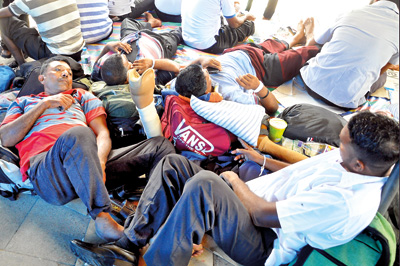
The scene in front of the Fort railway station. Pix by Priyantha Wickramaarachchi

